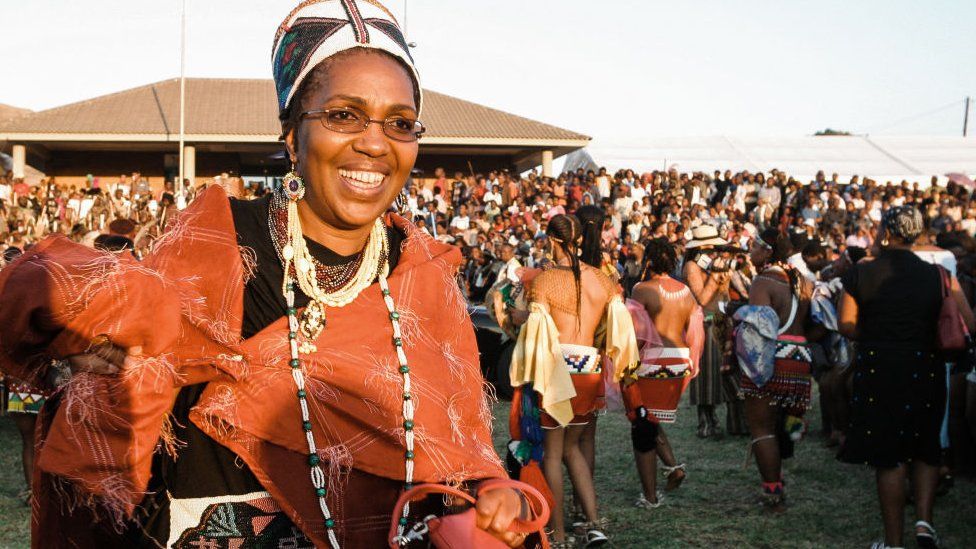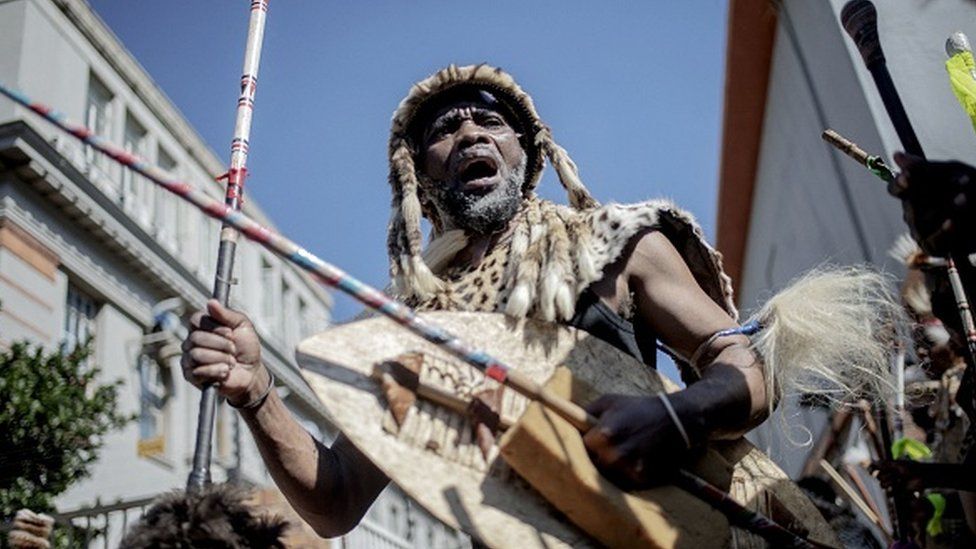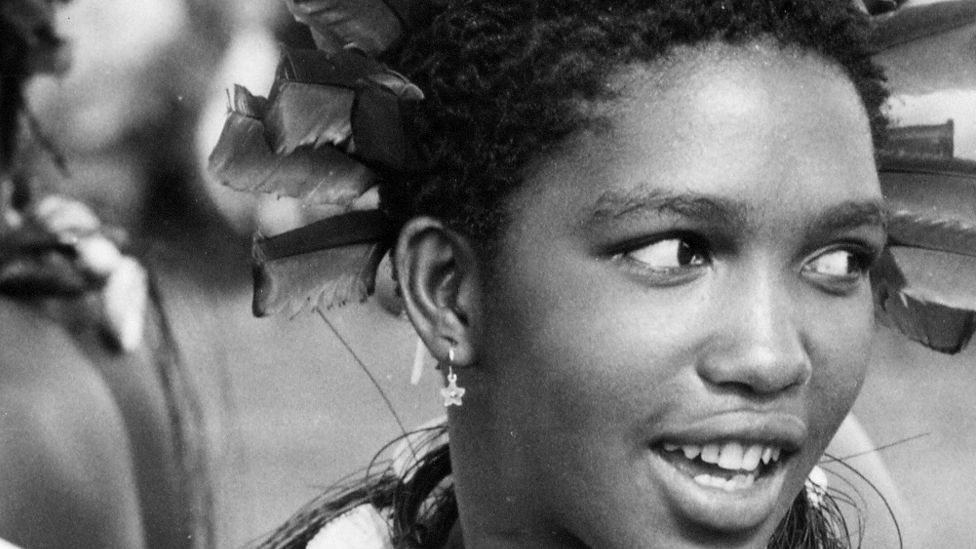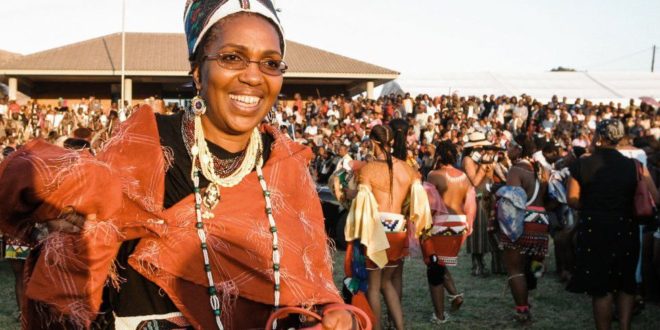
The Zulu Queen, Mantfombi Dlamini-Zulu, who died unexpectedly last week, has been buried in a private ceremony in South Africa’s KwaZulu-Natal province.
She was appointed regent of the country’s largest ethnic group in March following the death of her husband King Goodwill Zwelithini.
The queen’s death, at 65, has triggered a bitter family feud and a power struggle over the succession.
The family has dismissed rumours that she had been poisoned.
But the cause of the queen’s death is yet to be announced by the royal family.
The decision on who will now lead the Zulu nation of about 11 million people is yet to be made.
The throne does not have formal political power and the monarch’s role within broader South African society is largely ceremonial. But the Zulu monarchy remains hugely influential, and has a yearly taxpayer-funded budget of more than $4.9m (£3.5m).
Queen Dlamini-Zulu was buried at KwaKhangelamankengane Royal Palace in a town about 480km (300 miles) from South Africa’s main city Johannesburg in the early hours of Friday morning after a night vigil.
 IMAGE COPYRIGHTGETTY IMAGES
IMAGE COPYRIGHTGETTY IMAGESThe queen was the sister King Mswati III of neighbouring Eswatini and she was buried according to Swati royal culture, reports the BBC’s Nomsa Maseko.
Her body was wrapped in a cow’s hide by a delegation that was sent by King Mswati and the funeral was attended by family members from both the Zulu and Eswatini monarchies.
A state-funded memorial will be held at the palace later today.
 IMAGE COPYRIGHTGETTY IMAGES
IMAGE COPYRIGHTGETTY IMAGESQueen Dlamini-Zulu was named regent by her late husband, King Zwelithini, who died from diabetes-related complications at the age of 72 on 12 March.
The longest-reigning Zulu monarch, King Zwelithini had six wives and at least 26 children. But he picked Queen Dlamini-Zulu as his successor because she was the only wife with royal blood.
Queen Dlamini-Zulu had eight children – including five sons – with the late king and one of them, Prince Misizulu, is seen as the favourite to become the next king.
A legal challenge has been launched by some members of the royal family who have questioned the authenticity of the king’s will.
BBC.COM
 Home Of Ghana News Ghana News, Entertainment And More
Home Of Ghana News Ghana News, Entertainment And More






